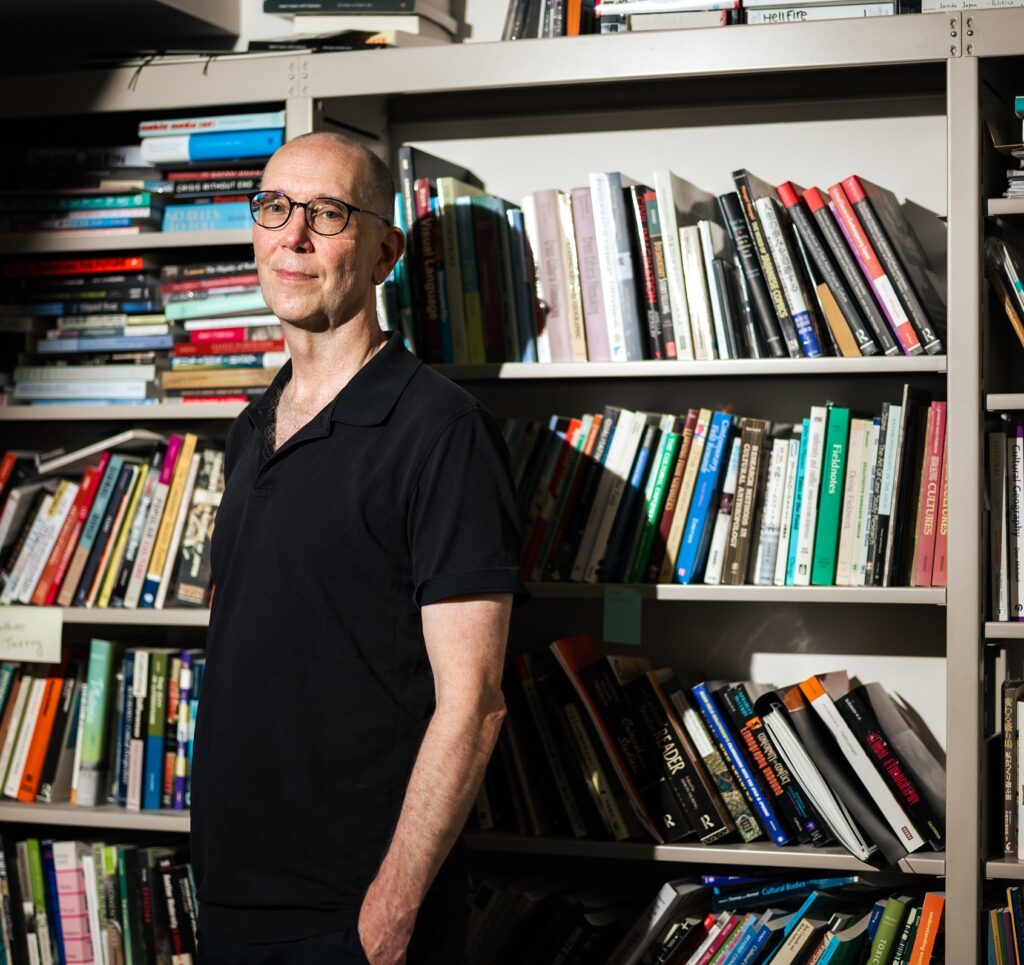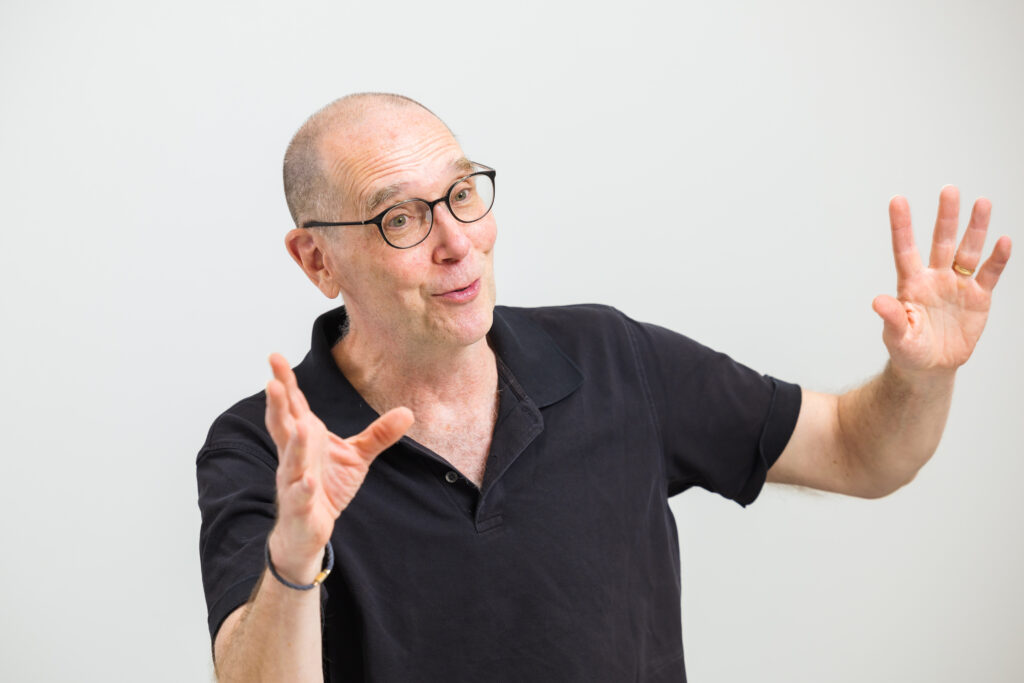
Faculty of Liberal Arts professor and cultural anthropologist David Slater was propelled to action by the Great East Japan Earthquake of 2011. His research is concerned with finding ways in which people truly in need can be supported. A field of academia that nurtures diversity and respect for others, what exactly is cultural anthropology?
Hearing the term “cultural anthropology,” images of unknown tribes and unexplored regions often come to mind. However, my scholarship focuses mainly on refugees, the homeless, and disaster victims – groups who are often forgotten by mainstream society, despite the fact that they are with us all the same. The foundational methodology I use is ethnography, which is when a researcher places themselves within the same living environment as the group of people they are studying. Field work involves spending an extended period of time with the target group, keeping meticulous records, and trying to understand the peoples’ worldview such as their way of thinking and feeling.
Anthropology begins with the perspective that different groups of people see the world in fundamentally different ways. In anthropological field work, one might say it is like removing your own “cultural lenses,” putting on those of another group of people, and experiencing the world and your surroundings through their eyes. In doing so, certain things may at first appear more out of focus or in focus than you are used to; you may get a headache and be disoriented. Anthropology attempts to understand others through these kinds of subjective experiences. Cultural anthropology’s contribution is in helping us to understand the interior life of other people, and how they are connected to their society. It is in understanding values different from those in our own culture that we can become more aware of our own often unconscious values, including our biases and prejudices.
Binding Together Support and Scholarship

The big turning point in my career was the Great East Japan Earthquake that occurred on March 11th, 2011. I decided that it was crucial to record the voices of people that society seemed to leave behind and to share their voices with the rest of the world. In the wake of the disaster, the university was grappling with the idea of how we could play a role in support and recovery. Students in my seminar exclaimed that they did not want to learn about disasters in books – they wanted to learn actively by going to the Tohoku area and volunteering their time to support people. Frankly, I was at a loss as to what to do at first, but I took it as an opportunity to refine my approach to teaching and research. From then on, I decided that it was important that I involve myself only in those endeavors in which support and scholarship are both present.
After the earthquake, I started thinking that ethnographies and research without a connection to society were empty. At the same time, however, we must understand that providing the most effective and necessary support is inseparable from logical thinking that comes from conducting social research. Bringing these two together, I think, generates more meaningful research and more accurately directed support.
Respect for Others is Essential for Future Generations
Currently, my work is involved with refugees who come to Japan. Among advanced nations, Japan’s refugee acceptance rate ranks at the absolute bottom: less than 1% of applicants. In our project, we record and archive the voices of such refugees – people who have nowhere to go, or if they return to their home countries, would be imprisoned or killed due to their political beliefs and activism – and publish their stories online. We go further by sending out food and hygiene products, helping to translate immigration documents, and providing other types of support for those all over Japan through the Sophia Refugee Support Group, a student led-circulate associated with the project (you can see the result of our project here, Refugee Voices Japan, https://refugeevoicesjapannet.wordpress.com/).
In class, students learn how to do background research, plan and execute an interview, record and edit video, and other skills necessary for conducting ethnographic research. Oftentimes as refugees open their hearts to us and tell their incredible stories, students are shocked, sometimes frightened but being able to develop empathy and learning to listen deeply to others is one way to contribute to creating a more diverse and just society. It seems that students value this opportunity.
Showing respect to others and encouraging diversity is an essential task for the generation that will lead Japan into the future. Students in our program learn to think from multiple perspectives in a systematic way. They learn to recognize and deeply consider the humanity – and sometimes inhumanity and contradictions – present in our daily lives. I like to think that these character-forming experiences are of benefit to students regardless of the career they pursue after graduation.
The book I recommend
“King Lear in William Shakespeare: The Complete Works”
published by Collins

Despite growing up as a boy who loved soccer and hated reading, the first book I read seriously was King Lear. I was impressed at myself for being able to finish it, but at the same time I was exhilarated at how reading gave me the experience of slipping into another world separate from my day-to-day life. This was the book that sparked my interest in discovering unknown experiences and perspectives different from my own.
-
David Slater
- Professor
Department of Liberal Arts
Faculty of Liberal Arts
- Professor
-
David Slater earned his M.A. and Ph.D from the University of Chicago. After coming to Japan, he worked on urban youth and social class, the 2011 triple disaster in Tohoku, and has been recently actively supporting and conducting scholarly work related to foreign refugees coming to Japan. He assumed his current post at Sophia University in 1997.
- Department of Liberal Arts
Interviewed: July 2022